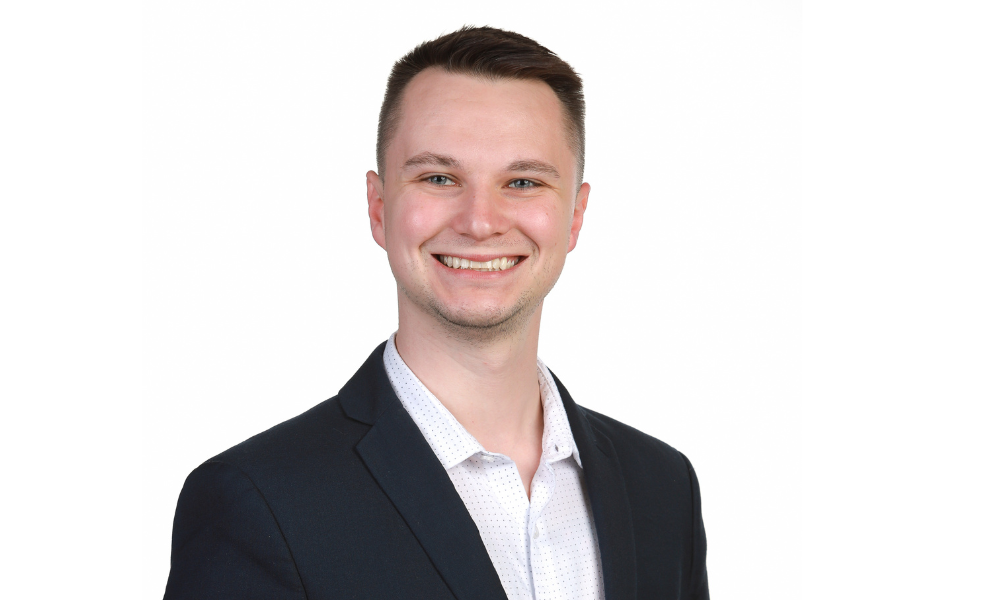Evan Riddell explains why he wants new recruits who can ‘fail fast’

Finding the right candidate can be a laborious experience for anyone looking to expand their workforce, as employers need to find the talent that makes sense for their team.
For Evan Riddell, his small yet effective team has its roots in a hiring process that ensures they find the right fit. He usually fluctuates between three or four employees, and says that he might want to bring that number up to five in the coming years if it makes sense.
“We have a small team, but we've got fantastic people,” said Riddell, wealth and investment advisor with Ridell Wealth Management at Richardson Wealth Ltd in Victoria, B.C. “I think that comes from the process we took and being really intentional around hiring and making sure we get the right fit.”
Riddell emphasizes the inevitability of mistakes when he brings in a new hire, though says this is all part of the process of bringing someone onto his team. He wants new recruits who are not afraid of making mistakes, as long as they are able to recognize how to fix them in the future. Riddell’s “fail fast” mentality has been essential to his own personal success, and hopes to see the same mindset with new hires.
“I’ve told every hire I've ever had that day one, you're going to make mistakes, and that's okay. The fastest learning you're going to do is from making more mistakes. Make a mistake, learn from it, don't do it again,” he said. “Fail fast. That’s something that I thrive on. If I’m trying things out and they don't quite work, I'll just keep trying until I figure it out, and try to learn from my mistakes as much as possible.”
Communication is a key attribute Riddell hopes to see from candidates he considers. With his team mostly working remotely, finding talent that are not shy to pick up a phone is essential, while the ability to craft a professional and polite email is also important. Finding candidates who are not only tech savvy, but also able to adapt to a variety of software systems is key to Riddell, who has used a number of trading and CMS platforms throughout his time as an advisor.
“A lot of our team works remote, which is fantastic, but it wouldn't work as well if the individuals on the team weren't good communicators. When I'm having conversations with them through email, over Teams or in person, I’m making sure that they're really strong on both the written and verbal side of things,” he said. “I don't necessarily need someone to know the specific tools like the CRM or the trading tools that we use, but I need them to be able to learn and adapt to those very quickly.”
In the interview process, Riddell wants to hear questions from potential hires. He says curiosity is a key trait he is searching for, as this indicates whether the candidate is going to be a willing learner moving forward. Finding lifelong learners is a priority for Riddell, who wants to see new hires constantly evolve once they join his team.
“We’re always looking for when a good potential hire is asking good questions, because in my mind, it shouldn't be just conversations we're having with them,” he said. “They should also be asking and vetting us to a certain degree as well. And through their questions, we usually can tell us a lot about their internal curiosity and their internal drive.”
When assessing educational backgrounds, Riddell is looking for candidates who have demonstrated a keen interest in finance during their studies. Applicants who demonstrate an interest in finance-related podcasts or books help differentiate themselves from the rest of the pack, according to Riddell. He also says candidates who join the FPAC or begin their Canadian Securities Course during their studies demonstrate initiative and a keen interest in the profession they have chosen, rather than simply attending university for a degree.
“Did you do any of those extracurricular things that will show this is something you love and really enjoy?” he said. “Sometimes I also ask what books they like in the industry, or if they follow any podcasts. That will usually give me a sense of if they are just looking to get a job, or if they’re really interested in the field itself, and they're looking to learn more in that area.”
While reviewing applications, Riddell says the first hurdle he looks for is a resume tailored to the job a candidate is applying for, as it demonstrates whether a candidate can communicate and write proficiently. He says the resume screening usually weeds out 90 per cent of applicants.
“We use the resume to help filter right away,” he said. “And just right there, you can typically see the poor communicators, the individuals who can't write well or can't communicate what they're trying to.”
Riddell’s interview process begins with a short, informal phone conversation where he can get a good sense of who the candidate is and whether they tick the boxes he is looking for. Then, Riddell says he holds a more formal interview with an associate to make sure they are in agreement about the whether or not the candidate will be a strong fit to his team. The final component involves an in-person meeting or lunch with his whole team, another test to ensure the candidate is going to transition into his firm seamlessly.
Working with a small team means efficiency is essential according to Riddell. He says his team can often get the same work done as a 10-person team through efficient workflows and excellent client communication, and is always looking for individuals who can meet those professional expectations.
“I've always had a leaner team, making sure that we're really focused on being efficient and that we're highly effective with clients to get the best outcomes for them.”



